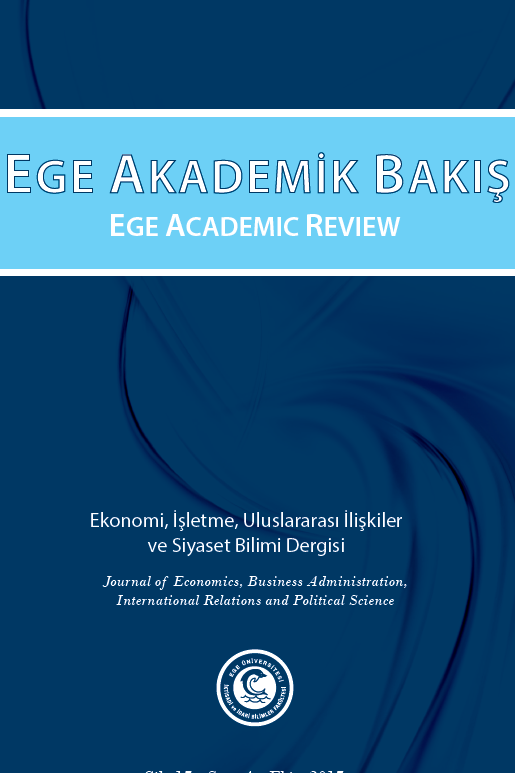Ürün Farklılaşması ve Yapma-veya-Satın Alma Kararları için Girdi Fiyatlarının İlgisizliği
Zorunlu ağ ayrıştırılması, günümüzde regülasyon ekonomisinin belki de en önde gelen konularından biridir. Kavram telekomünikasyon, gaz, elektrik ve demiryolları dahil olmak üzere çok sayıda önceden düzenlemeye tabi endüstrinin deregülasyonunda çok büyük öneme sahiptir. Ayrıca, konu, Amerika Birleşik Devletleri’nde 1996 Telekomünikasyon Yasası’nın uygulanmasına bağlantılı olarak, daha bilinir meselelerden biri olarak ortaya çıkmıştır. İlk incelemede doğru maliyet standartların oluşturulması ve/veya doğru girdi fiyatlarının belirlenmesi, piyasaya yeni giren firmalara verimli yapmaveya-satın alma kararları için doğru fiyat sinyalleri göndermek açısından önemli gibi görünmektedir. Ancak, Sappington piyasaya yeni giren bir firmanın yapma-veya-satın alma kararına ilişkin girdi fiyatlarının ilgisizliğini göstermek için standart Hotelling lokasyon modelini kullanmıştır. Bu çalışmada, bu sonucun Hotelling çerçevesinin özel koşulları ile yakından ilgili olduğunu gösterdik. Spesifik olarak, firmalar homojen ürünler ürettiklerinde girdi fiyatlarının ilgisiz olduğu, fakat yeni giren firma ve yerleşik firma farklılaştırılmış ürünler ürettiklerinde yapma-veya-satın alma kararları için girdi fiyatlarının ilgili olduğu Bertrand fiyat rekabeti çercevesinde gösterilmiştir. Bu sonuçlar genel olarak düzenleyici kurumların (regülatörlerin) piyasaya yeni giren firmaların verimli yapma-veya-satın alma kararlarını bozmamak için doğru fiyatlar belirlemesinin önemli olduğunu ileri sürmektedir
Anahtar Kelimeler:
Girdi fiyatları, zorunlu kullanıma açma, yapma-veya-satın alma kararları, deregülasyon, ürün farklılaştırması
Product Differentiation and the Irrelevancy of Input Prices for Make-or-Buy Decisions
Mandatory network unbundling is perhaps one of the foremost topics in regulatory economics today. The concept has crucial importance in the deregulation of many previously regulated industries including telecommunications, gas, electricity and railroads. Moreover, the topic has emerged as one of the more prominent issues associated with the implementation of the 1996 Telecommunication Act in the United States. Upon initial examination, establishing the correct costing standards and/or determining the correct input prices would seem important for sending the correct price signals to the entrants for their efficient make-or-buy decisions. However, Sappington uses a standard Hotelling location model to show that input prices are irrelevant for an entrant’s make or buy decision. In this study, we show that this result is closely related to the specific conditions of the Hotelling framework. Specifically, it is shown that input prices are irrelevant when firms produce homogeneous products, but are relevant for makeor-buy decisions when the entrant and incumbent produce differentiated products under Bertrand price competition framework. These results suggest that, in general, it is important for regulators to set correct prices in order to not distort the entrants’ efficient make-or-buy decisions
Keywords:
Input prices, mandatory unbundling, make-orbuy decisions, deregulation, product differentiation,
___
- Armstrong, M. (2002) “The theory of Access Pricing and Interconnection” M.E. Cave, S.K. Majundar and I. Vogelsang (eds.) Handbook of Telecommunications Economics, Amsterdam, Elsevier Science.
- Armstrong, M., Doyle, C. and Vickers, J., (1996) “The Access Pricing Problem: A Synthesis” Journal of Industrial Economics, 44:131-150.
- Armstrong, M. and Vickers, J. (1998) “The Access Pricing Problem with Deregulation: A Note” Journal of Industrial Economics, 46:115-121.
- Beath, J. and Katsoulacos, Y. (1991) The Economic Theory of Product Differentiation, New York, Cambridge University Press.
- Chen, Y. (2001) “On Vertical Mergers and Their Competitive Effects” RAND Journal of Economics, 32:667-685.
- Crandall, R., Ingraham, A., and Singer, H. (2004) “Do Unbundling Policies Discourage CLEC FacilitiesBased Investment?” The B.E. Journals in Economic Analysis & Policy,1-23.
- Gayle, P. G., and Weisman, D. L. (2007a) “Are Input Prices Irrelevant for Make-or-Buy Decisions?” Journal of Regulatory Economics, 32:195-207.
- Gayle, P. G., and Weisman, D. L. (2007b) “Efficiency Trade-Offs in the Design of Competition Policy for the Telecommunications Industry” Review of Network Economics, 6:321-341.
- Hausman, J. and Sidak, J. (1999) “A Consumer Welfare Approach to Mandatory Unbundling of Telecommunications Networks” Yale Law Journal, 109:417-505.
- Hazlett, T. W. (2006) “Rivalrous Telecommunications Networks with and Without Mandatory Network Sharing” Federal Communications Law Journal, 58:477- 510.
- Hotelling, H. (1929) “Stability in Competition.” Economic Journal, 39(154):41-57.
- Kahn, A.E, Tardiff, T. J. and Weisman D. L. (1999) “The Telecommunications Act at Three Years: An Economic Evaluation of Its Implementation by the Federal Communications Commission” Information Economics and Policy, 11:319-365.
- Laffont, J.-J., and Tirole, J. (2001) Competition in Telecommunications, Cambridge, Massachusetts, The MIT Press.
- Mandy, D. M. (2009) “Pricing Inputs to Induce Efficient Make-or-Buy Decisions” Journal of Regulatory Economics, 36:29-43.
- Onemli, B. (2010) Three Essays on Regulatory Economics, Ph.D. Thesis, Kansas State University.
- Sappington, D. E. M. (2005) “On the Irrelevance of the Input Prices for Make-or-Buy Decisions” American Economic Review, 95(5):1631-1638.
- Singh, N. and Vives, X. (1984) “Price and Quantity Competition in a Differentiated Duopoly” The RAND Journal of Economics, 15(4):546-554.
- Tirole, J. (1989) The Theory of Industrial Organization, Cambridge, MA, MIT Press.
- Weisman, D. L. (2000) “The (In)Efficiency of the Efficient Firm Cost Standard” Antitrust Bulletin, 45:195- 211.
- ISSN: 1303-099X
- Yayın Aralığı: Yılda 4 Sayı
- Başlangıç: 2000
- Yayıncı: Ege Üniversitesi
Sayıdaki Diğer Makaleler
Avrupa Birliği'nin Beşinci Genişleme Süreci: Ekonomik ve Siyasi Boyutlar
Volkan ÖZBEK, Ümit ALNIAÇIK, Fatih KOÇ
Ürün Farklılaşması ve Yapma-veya-Satın Alma Kararları için Girdi Fiyatlarının İlgisizliği
Türk Kamu Yönetim Sistemi için Bir İnteraktif e-Katılım Modeli: SİBİYO
Naci KARKIN, Hüseyin Serhan ÇALHAN
Aytül Ayşe CENGİZ, Ahmet Emre DEMİRCİ
Tüketicilerde Suçluluk Duygusu: Öncül ve Sonuçları Üzerine Bir Model
